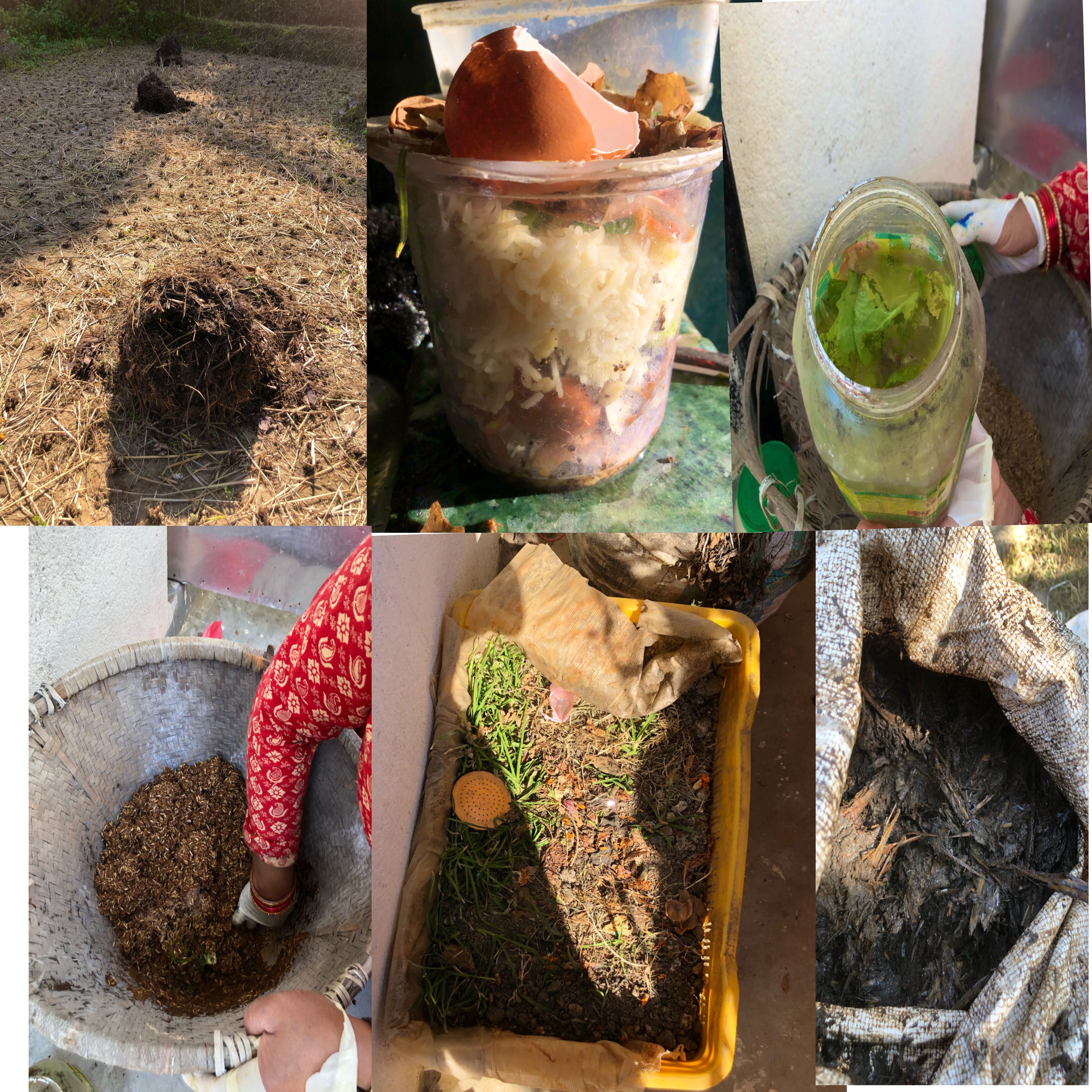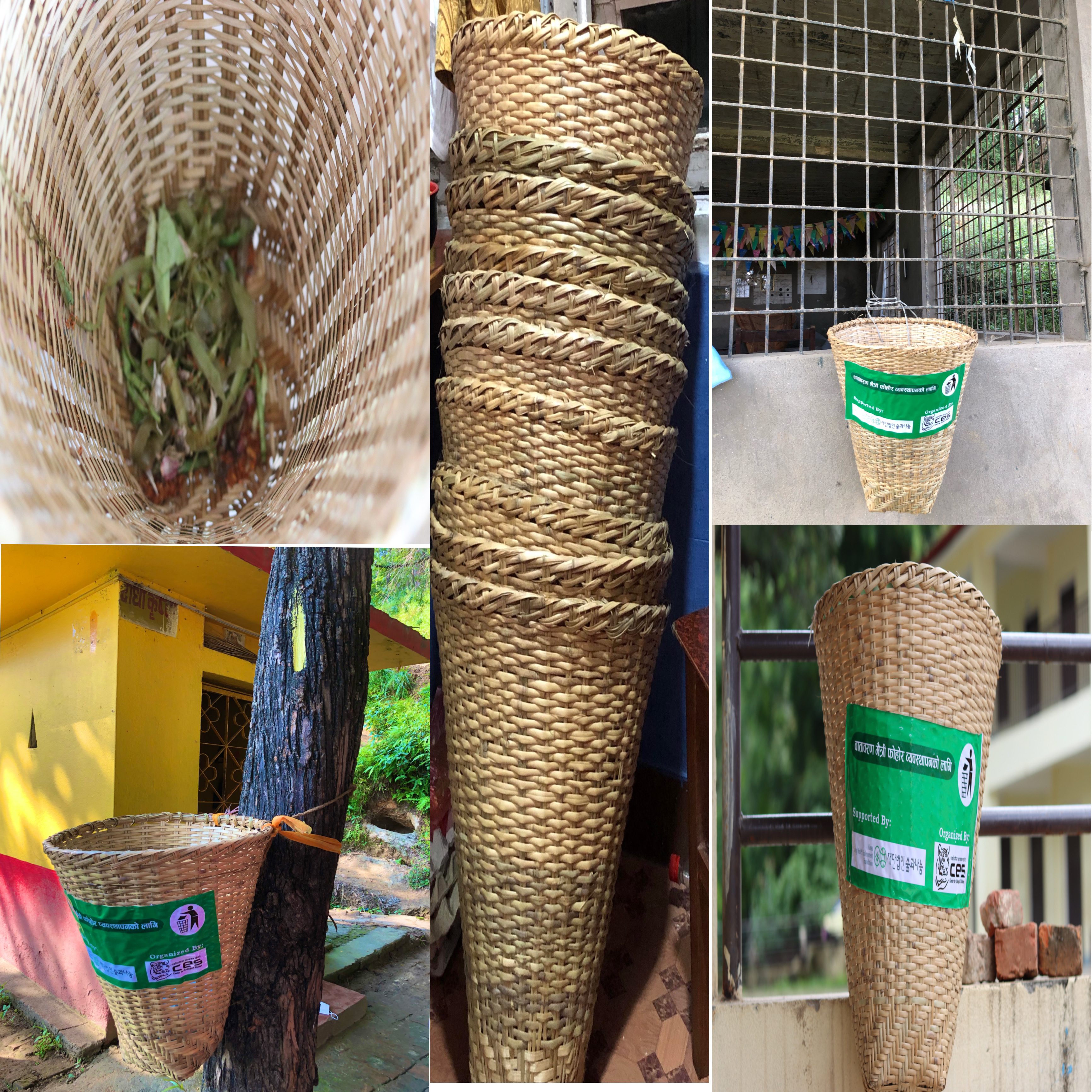Global Seed Grant Activity Board
[Centre for Ecological Studies] Capacity building training on organic waste management for methane emission reduction
2기
작성자
숲과나눔
작성일
2021-12-21 13:22
조회
858
1. Project description
Summary of the Project
Solid waste management, being a major concern in most of Nepal's urban areas, is either left unattended or burnt without segregation, resulting in pollution, carbon emission, and health hazards. More than 60% of the waste produced in Kathmandu is organic. Most of the local communities and school students in Nepal have a low level of solid waste management using scientific techniques. Solid waste management has become one of Nepal's most serious and debated issues. Because the municipality is unable to handle solid waste on its own, community engagement in trash management is encouraged.
Henceforth, there is an urgent need to sensitize and mobilize key community stakeholders like youth groups, community forest user groups (CFUGs), mother groups, and school students through environmental education and extensive training on organic waste management. As a result, this project addressed the issues of organic waste pollution in order to control solid waste pollution in general and specifically ameliorate the impacts resulting from it by building the capacity of marginalized people and other community members on organic waste management and by developing trainees as cleanliness ambassadors through the formation of eco teams, commemorating World Cleanup Day, distributing eco-friendly dustbins, and waste assimilation.
This project was specially designed to create awareness among the people who are still unaware of the harmful effects of mixed waste, sensitize them and create fresh and healthy spaces for living. The training was designed in such a way that each trainee spread the knowledge gained from their training to their relatives and community, so a total of 150 participants was reached, with 300 participants mobilizing the cleanliness volunteers in large numbers for sustainable waste management. The communities were trained by a professional trainer. The theme of the training was based on reuse and recycling of solid waste, such as composting for urban farming and energy generation.
2. Project progress up to now
Qualitative outcomes:
> Trained communities and stakeholders was fully aware of the waste segregation process, use of different waste bins along with preparation and use of green manure from the bio degradable waste generated from the household.
> The awareness campaign and sensitization have strengthen local community and concerned stakeholders capacities in sustainable solid waste management to reduce methane emissions.
> Community and student awareness campaigns & outreach materials build up their solid waste management skills and knowledge.
> The findings from waste assessment and waste audit will also be replicated to other areas via scientific journal publication.
> Coordination and organic waste management approaches and attitudes among relevant stakeholders for maintaining clean and healthy environment have been strengthened.
Quantitative outcomes of the projects:
> More than 180 community people, youth group’s students were trained and their capacity have been built regarding solid waste management. This have further created more than 500 cleanliness ambassador.
> Through Online video competition, many people from national as well as international platform were interacted on theme, “Organic manure preparation:
A way to convert trash into treasure”. Moreover, the collected video were disseminated via online platform that have played a vital role in awaring many people.
3. Project plan forward
Since this project was not only focused on training and sensitization but to create an actual impact in the communities, as in Nepal, the local governments are facing serious challenges in managing solid waste generated in the cities and keeping them clean. So, this effort will be continued for the long run. We have also collected household responses in the study that clearly demonstrate that there is a dire need to be aware of many people living in the proximity of the study area regarding solid waste preparation. As a result, a consistent and rigorous outreach program is required to educate people about waste segregation and organic manure preparation. Though our project is coming to an end, we will continue to share the progress of Nagarjun communities in organic manure preparation and how it is contributing to lessening the use of chemical insecticides and promoting organic farming while also assisting the communities in economically reaping the benefits.
We will constantly monitor the progress of the communities and also sensitize more interested communities regarding managing their organic waste. However, I intend to apply for more grants to follow up on solid waste management in this area by encouraging the local communities to use organic manure. The first phase of this work has been completed, but there is a need for follow-up of the population to encourage them and keep the spirit of conservation alive. We intend to contribute via journal publication based on the information obtained from these communities, which will undoubtedly help in arousing many conservation enthusiasts across the social platform.
4. Photos
A) Outreach materials and Video links:

B) Documentary video link:
C) Ecofriendly dustbin distributions:

